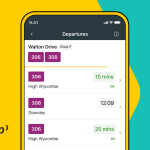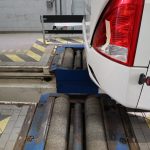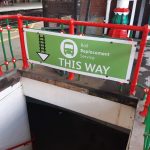The fourth industrial revolution, are you ready for it? uTrack CEO Eamonn Hughes finds out
A report suggesting that up to 500,000 jobs could be wiped out in construction as a result of robots replacing workers, got me thinking about how this new technological industrial revolution might impact on public transport.
Autonomous vehicles exist: There’s the rapid progress of Tesla with its Model 3 mass-market vehicle; Waymo with a driverless taxi, while Lyft and Uber are close behind. Also, every car manufacturer is busy working on a new level of autonomous vehicles. It means we’re on the cusp of major change as to how people view mobility.
Stealth advances
Almost by stealth, the combination of rapid advances in new technologies, such as robotics, autonomous vehicles, the Internet of Things, and artificial intelligence (AI) have combined to herald a revolution that will have I believe huge and significant implications across all sectors.
Passenger transport will not be exempt from this process. Indeed why should it be?
The reality is that enlightened vehicle designers and manufacturers are already busy building cars, lorries, trucks, buses, and coaches that will not require a person behind the wheel.

I recently asked a friend if he would buy a driverless car, his reply was immediate and positive. ‘Yes of course’, he replied, ‘it would allow me to work while travelling and I could enjoy a cheeky beer at the same time’.
The implications of robots in the construction industry could result in the virtual extinction of bricklayers. There are 73,000 employed in the UK; this could plummet to 4,300 by 2040.
It begs the question that at a time of serious driver shortages in the UK (56,000 HGV drivers according to a CILT survey in 2016), what will it mean for recruitment in the coach and bus sector in five, 10, 15, and 20 years time?
However, there is potential that the new revolution will also bring new growth, prosperity, and jobs.
Recently the CEO of engineering giant Siemens, Prof Juergen Maier, suggested that as many as 175,000 manufacturing jobs could be created in new technologies like 3D printing and AI.
Food for robotic thought
These would replace jobs lost in the traditional ‘hard’ industries. He even went as far as to say that if the government, industry, and workers forged a new industrial identity, it could unlock a staggering £445bn of potential growth. That is food for robotic thought.
As an industry we need to start looking at this next revolution as a major opportunity to bring in new ideas and business models.
We still have a major role to play, but our conservative nature will ultimately be the industry’s demise if we fail to invest in the future.





















